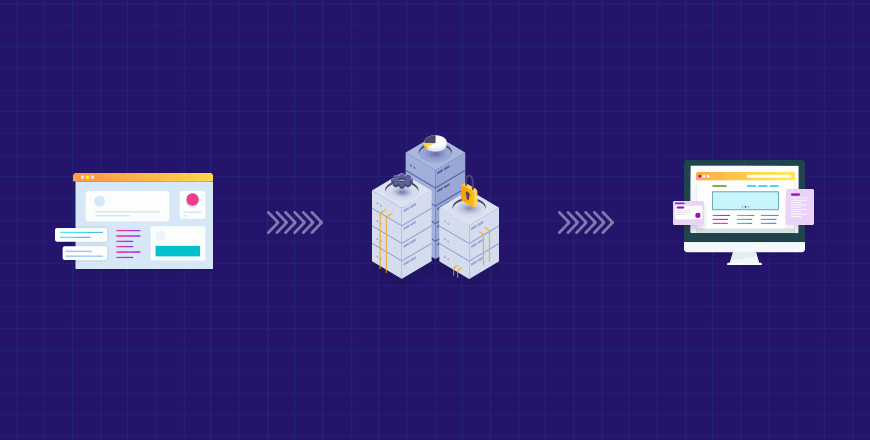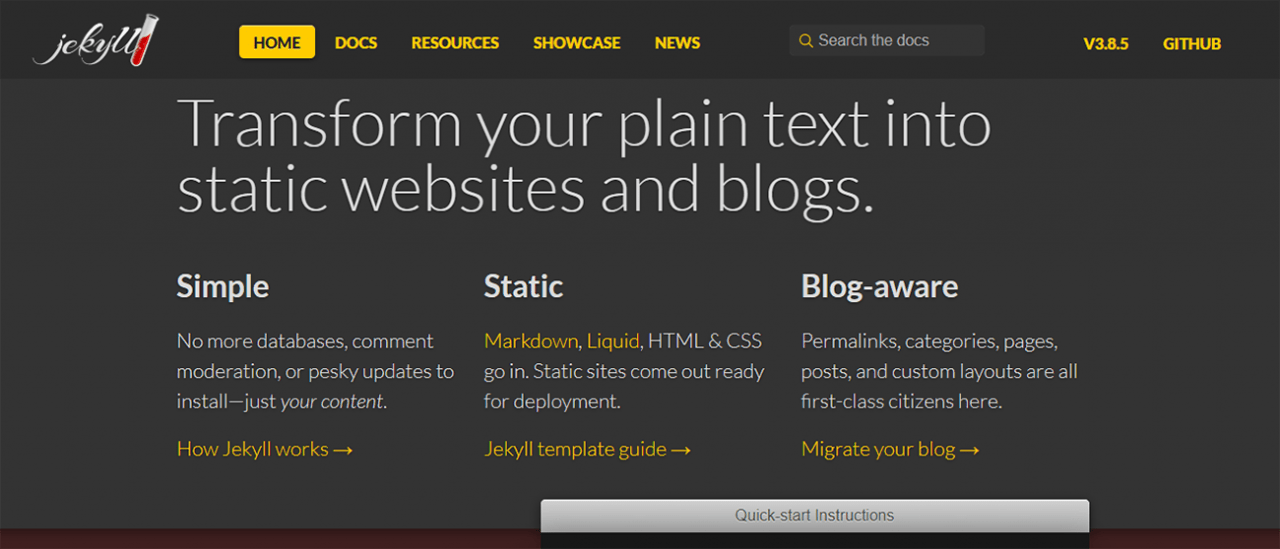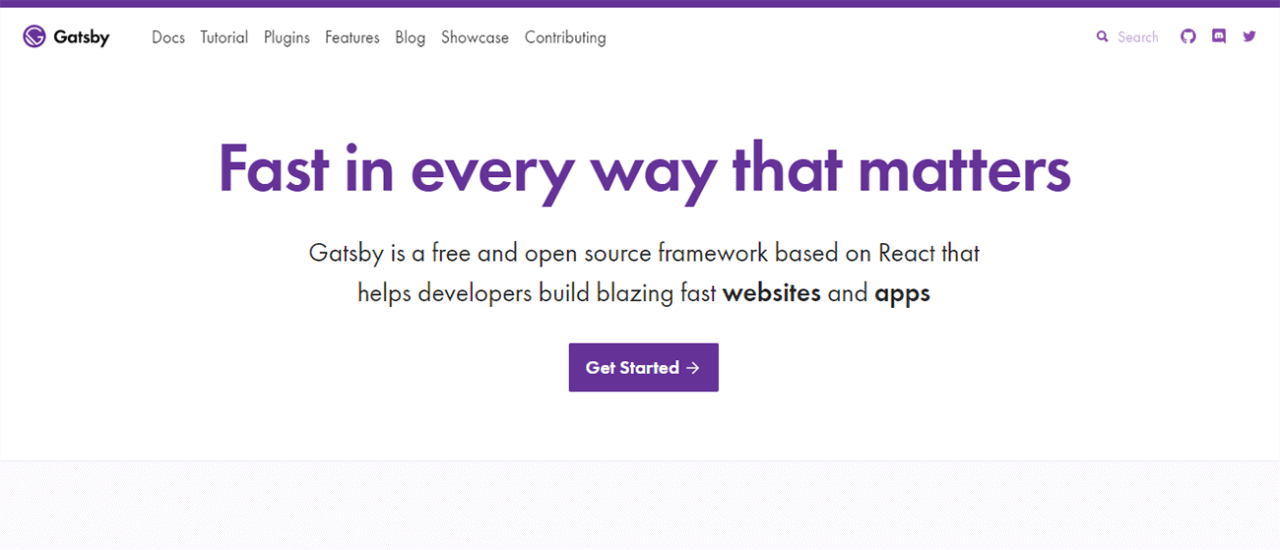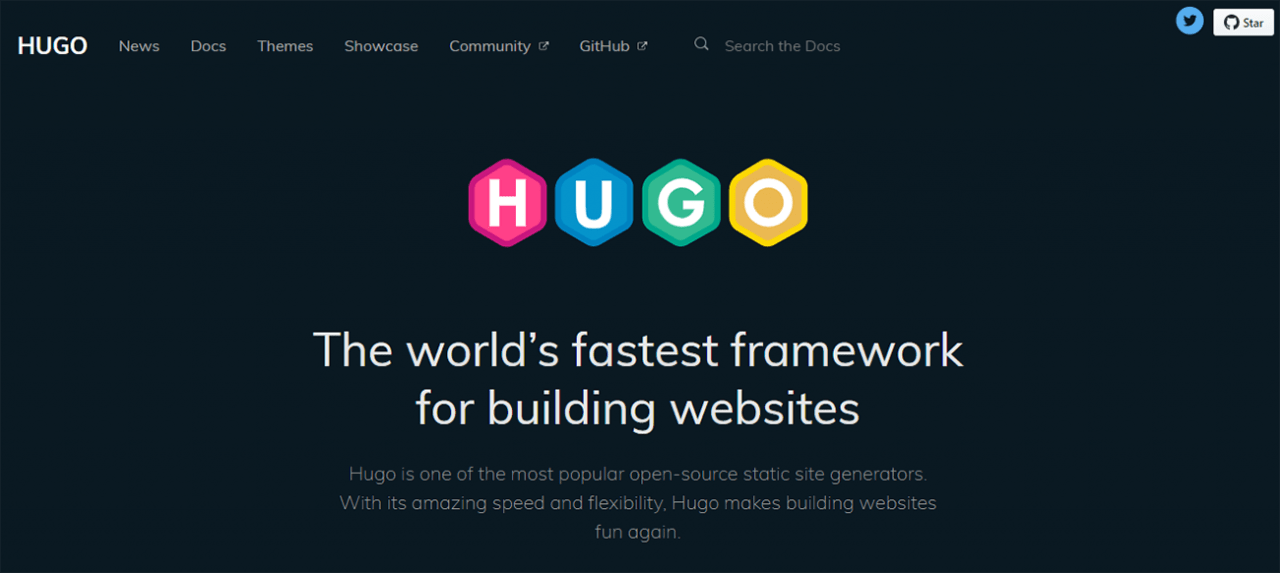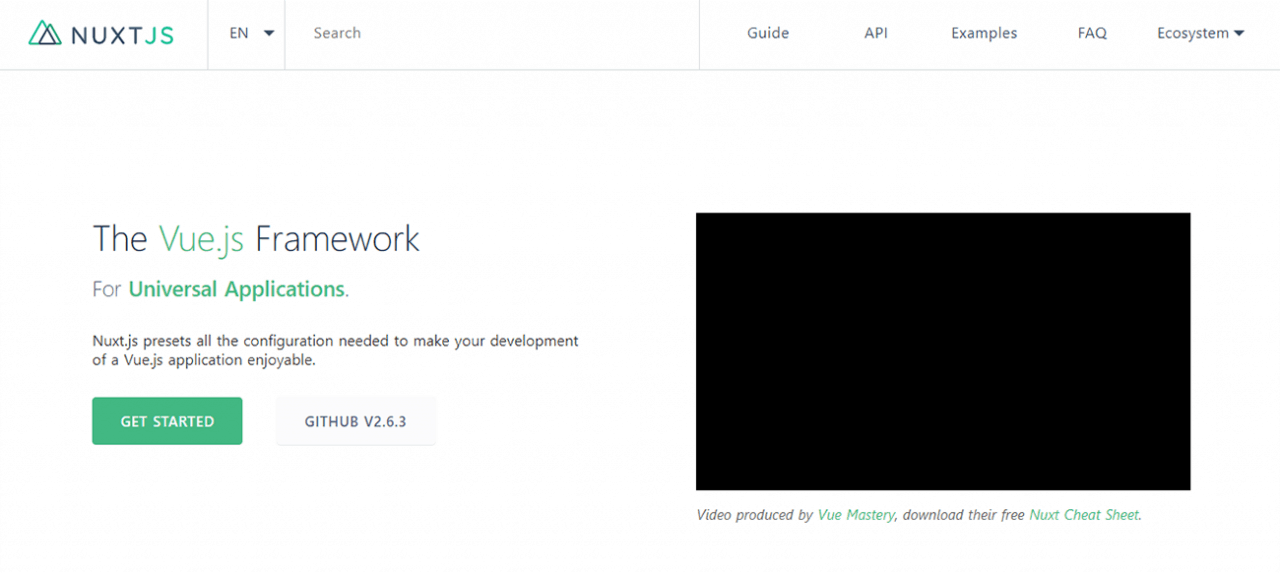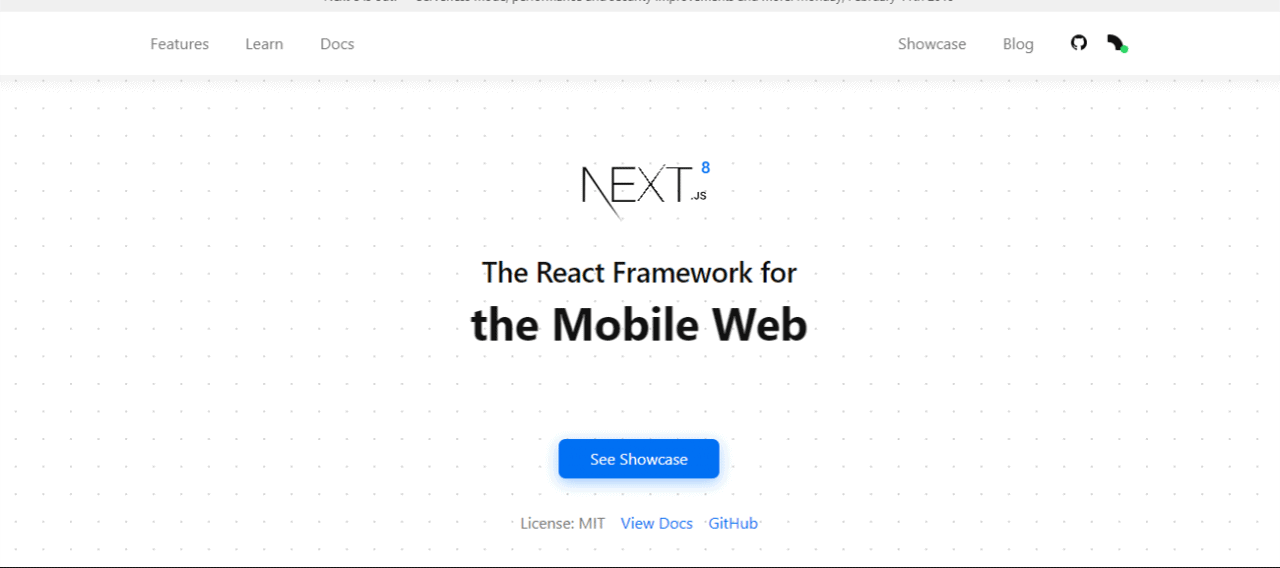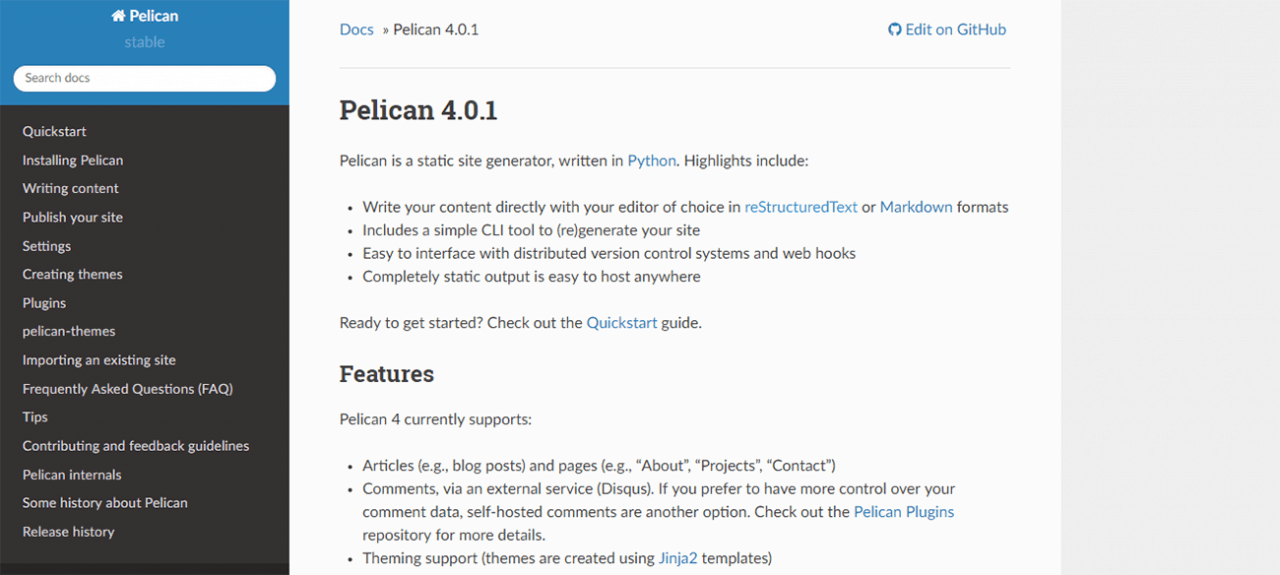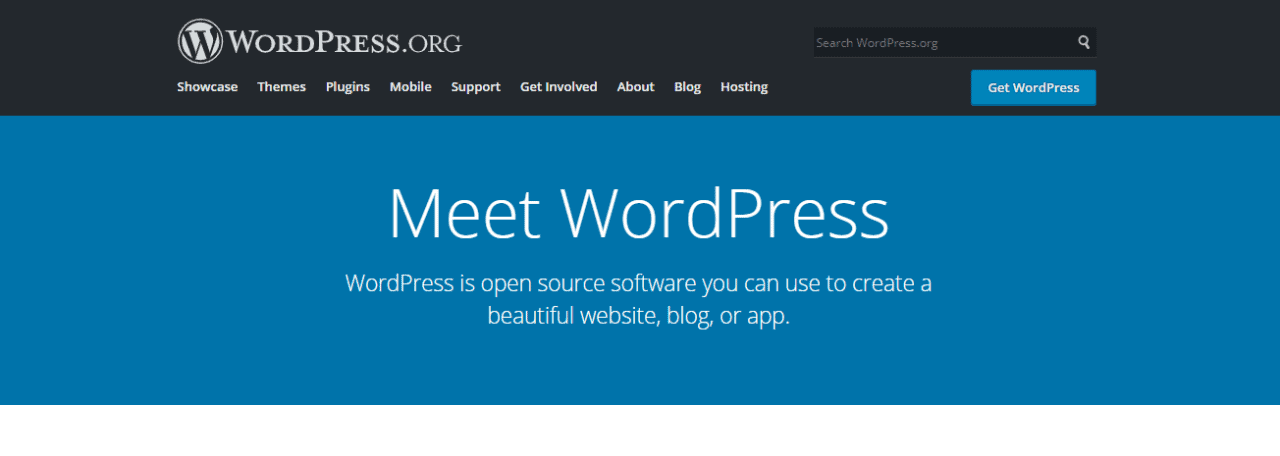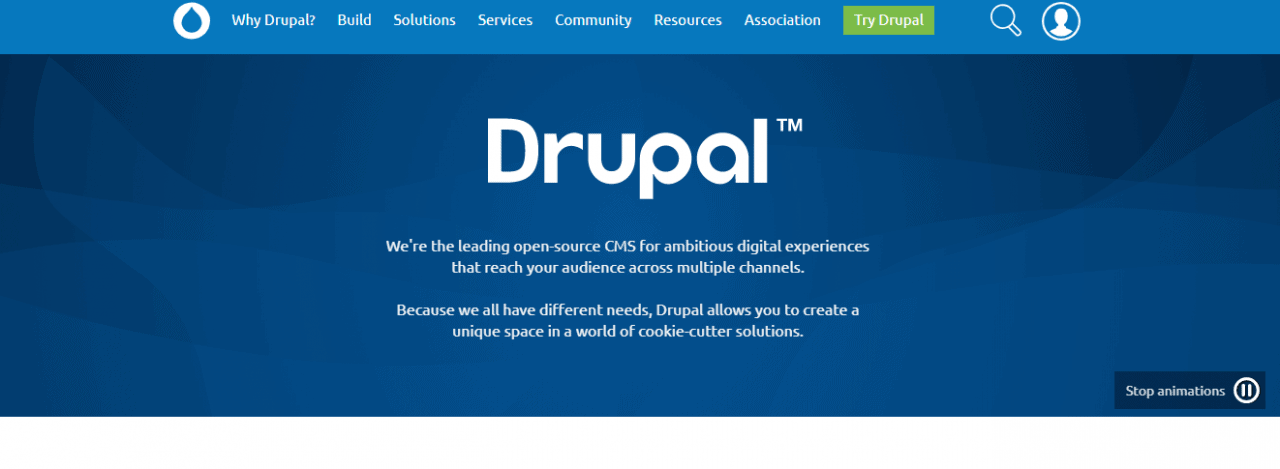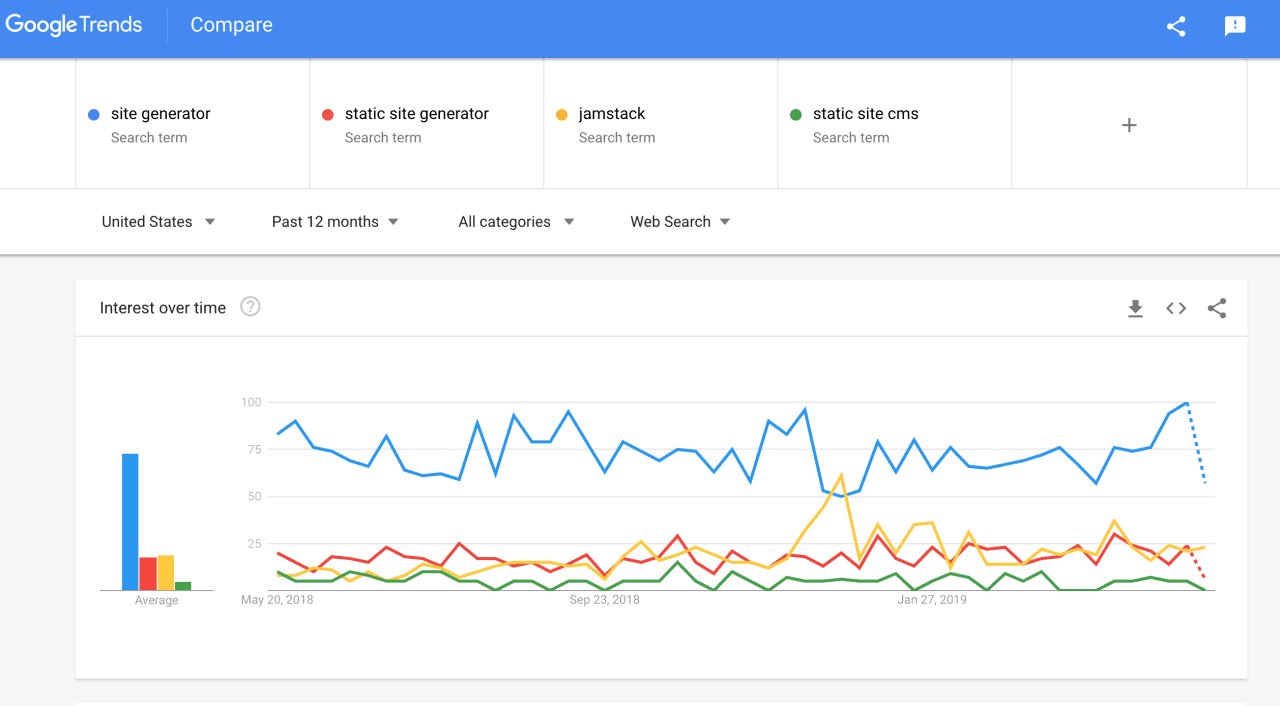No one likes a slow website! Especially when everyone is in a run. Therefore if your website is not fast enough, you better speed up to stick in the r...
No one likes a slow website! Especially when everyone is in a run. Therefore if your website is not fast enough, you better speed up to stick in the race. Static site generator will help you to generate a blazing fast website. Your site created with static site generator will load instantly anywhere.
Nowadays, JAMstack is getting popularity day by day. Basically, almost all of the popular static site generators are based on JAMstack. It is the future of development architecture as it is a serverless and headless technology, and it does not rely on database and plugins.
According to JAMstack website, JAMstack is a
Modern web development architecture based on client-side JavaScript, reusable APIs, and prebuilt Markup.
All the popular static site generator that is based on JAMstack are discussed in this article.
On the other hand, sites that rely on cms serve you a little bit slow but gives you extensive facilities that static site generator doesn't provide. For instance, CMS helps you to manage your content more structurally than a static site generator.
However, keep one thing in mind that, using CMS, you have to compromise with time in comparison with static site generator. So which one is best for you? To know more check out the details from below;
How Static Site Generator Works
A Content Management System (CMS) develop the web page dynamically as the client is requesting it and then it assembles all the data from the database and processes the content through a template engine like, e.g., WordPress.
On the contrary, in a static site generator, when a user requests a page on the static site, the request sends to the web server. Then the server finds the matching file and sends it back to the user.
In the static site, performance is high, caching is more comfortable, and more interestingly this is more secure.
Static site generator does not rely on databases or other external data sources and in addition to that, avoid any server-side processing when accessing the website.
Why We Use a Static Site Generator?
There are lots of reason behind choosing a static site, the most common reasons are;
- Fast Load Time: A static site generator provides compiled file to the browser that cuts the loading time by a large scale. On the other hand, dynamic site pulls information from a database on every page hit of a content-heavy site that can result in delays, frustration, and bounces.
- Flexibility: Static sites can perform better than dynamic sites as there are no calls to the database. Moreover, the files are already in one location, and always ready for the server to pass on to the client side. This flexibility helps the static site generator produce output in a shorter time to the client in comparison with dynamic sites.
- No Back-end: The entire site can be hosted on a content delivery network (CDN), which helps to get better performances, especially for global users than any dynamic sites.
- Reliability: Since there are less moving parts in a static site, the chances of the site going down are considerably lesser than a dynamic website. As it doesn't need to establish a database connection, so it is more robust and less likely to go offline.
- Security: In CMS, there need to install more plugins for more magnificent performances. Extra plugins mean an extra set of security that may come with a different set of vulnerabilities. As a result, it makes a threat to the security as there is no need to run code in the server side in a static web page so security can't be exploited.
- Less Maintenance and Lower Cost: There is no database; there are fewer things that can go wrong, that means less maintenance is needed. In the same way, fewer parts to maintain that means there are fewer things to pay for.
- Free Hosting on Github: Some static site generator websites can be hosted freely, e.g. Jekyll. Besides, the static site generator provide free blogging facilities.
Some of The Top Static Site Generators
There are a vast number of static site generator available in the market, and the number is approximately 400. If you are a beginner in the static development sector, you should know some of the best static site generators.
Knowing about it, you can choose the best one for you. Here, I will cover some of the best static generators that can make your sense about choosing a static site generator.
It is first released in 2008 by Tom Preston-Werner, the co-founder of GitHub. One of the most popular static site generators with a large user base and a big directory of plugins.
It's great for blogs and also widely used by e-commerce sites. It is not created based on JAMstack technology.
HEXO
Like Hexo, Gatsby is created by Node.js, but there are dissimilarities in use. Gatsby uses React; this means it can be picked up quickly by developers who have worked with React, but for those unfamiliar with it, learning React will be necessary. It is also created based on JAMstack technology.
HUGO
HTML based on JSON feeds. It also provides the pre-built templates to quickly set up SEO, comments, analytics, and other functions. It is not created based on JAMstack technology.
Nuxt framework is used to create Vue.js applications. It has a deployment option called "nuxt generator" to build static generated Vue.js applications. The last update version is v.2.6 which came out April 25, 2019.
NEXT JS
Next.js provides a set of features includes automatic code-splitting, simple client-side routing, web pack-based dev environment, and any Node.js server implementation.
Pelican supports multiple languages for content writing, including the ubiquitous Markdown. It's also fast, and can easily manage large sites with thousands of pages without making you wait for them to build.
Resources For Static Site Generators
Statichunt
There are few sites that provide good resources for static site generators. We found Statichunt, an open-source directory that enlists 700+ Jamstack themes, starters, and resources for static site generators submitted by the community.
Reason Not to Choose Static Site Generator
Having some flaw doesn't mean it is risky to use, but defects represent that there is still some sector to improve. The satisfying news is that static site generator is disappearing their limitations at a high pace.
- Static Site Generator Can't Use Page Builder: Page builders allow you to build your website without having any prior coding knowledge. You can create your website with drag and drop interface. It is extremely easy, speedy, and time saving to use. But static site generator can't provide you the facility to use any page builder like Joomla page builder- Quix.
- Problem With Managing Large Site: When a website deals with thousands of pages, regular publications, and dozens of authors in multiple locations, usually face problems. Because content editing and publishing contain some complexity. Besides, real-time updates would be delayed because the site must be rebuilt, tested, and deployed.
- Server Site Functionality: A static site can't offer interactive facilities such as user logins, form filling, search, or discussion forums. Though there are some client-side options, the choices are more limited. Besides, no database feature sometimes create hassle, mainly when you deal with an enormous number of files, no database backup make you frustrated.
What Is Content Management System (CMS)?
A content management system or CMS is a software that helps to create, edit, organize, and publish content.
In other words, a CMS grants you the ability to upload, edit, and delete content from a website without having any prior knowledge about HTML, CSS, or other coding languages.
It provides website authoring, collaboration, and administration tools that help users with little knowledge of web programming languages or markup languages to create and manage website content.
How Does It Benefit You?
You might thinking how it will help you to improve your work. Okay! let's check it out the ways that could assist you in your working time.
- CMS Use Page Builder: This is one of the best amazing features that CMS have. Having the blessing to use page builder, you can create your website within a very short time. You don't need to know any scripting language or developing language to build your website. The fun to use page builder is here.
- User-Friendly: A CMS benefits its users in many ways. A CMS is a user-friendly program that enables any team member to upload text and images or edit files. It allows any organization to easily place content on a website that helps draw-in more revenue and traffic to their site. It is used not only for small and medium business but also individual too.
Best CMS Platforms in 2019
Although WordPress was considered as a blogging platform, it has some fantastic features also. The platform is easy to use, and you can customize it to your heart's content using plugins and themes.
Joomla is also a free and open source platform like WordPress. It has templates, feature extensions, and a vibrant development community. One thing that makes Joomla different is its high-level security features.
Usability is one of its best strengths. If you are a non-technical person and you don't have any idea about programming, but you want to make a website. Then Joomla is for you.
You can tap into its open codebase to create something entirely original and unique.
It offers a very flexible system for dealing with custom post types. It also gives you a high degree of control over your users and their permissions, and it can even handle multilingual sites out of the box.
To create and publish your content, you can use the user interface that is provided by Drupal. It offers unlimited content types, text, media content, with customizable forms.
Wix
Wix has its best use in marketing CMS. It has an advanced customization feature that makes ease to any person to create their site.
It provides an easy drag-drop opting to build websites. For that reason, it receives a tremendous number of non-technical user worldwide.
Moreover, it has more than 100 free templates, and it runs the site in your web browser. It also provides web hosting. It also has some functionality, like photo galleries or e-commerce.
Typo3 is currently available in more than 50 languages. As a result, it supports publishing content in multiple languages. Those who are looking for a multilingual solution, it can be an option for them.
Companies of all sizes can use Typo3 as it is very flexible. Without writing code, new functions can be used.
Static Site Generator vs CMS
Though Static site generator is left behind than static generator, it far away than static site CMS according to Google Trend. Now, it is competing with JAM Stack and the growth is obvious.
- A Static Site Is Faster Than a CMS: When a visitor sends a request to a dynamic site, it engages the database to show the result while a static site generator doesn't need to join the database. As a result, we can say that static site generator is far better than a CMS.
- A CMS Is More User-Friendly Than a Static Site Generator: Both static site generator and CMS provide the opportunity to create a site without having technical knowledge or coding knowledge. But keep one thing in mind that, CMS can use the page builder whereas static site generator can't use page builder.
- Static Site Generator Is More Customizable Than CMS: Customizing CMS is more complicated than static site generator as CMS is extremely time-consuming even for experts; moreover, it is a painful and error-prone task. CMS/Dynamic site takes a lot of time to customize files, style sheets, and JavaScript codes. On the other hand, static site generator is easy to customize.
Comparison Table
| | Static Site Generator | CMS |
| Portability | YES | NO |
| Security | Strong | Average |
| Page Builder | NO | YES |
| Reliability | Strong | Average |
| Require Maintenance Effort | Minimum | Maximum |
Which One to Choose?
If you want to decorate your site with login, log out feature in a better-structured way, and if you're going to sell any products, then you should choose CMS. As CMS offers you a lot of plugins and themes compatibility though, it will cost you a little bit more time.
On the contrary, static site generators are ideal for developers who want small, snappy websites, or who are hunting for a delivery layer to accompany their headless CMS.
If you're going to create your site without login, log out (the registration form) feature and want to use your site with a blazing speed then you should choose static site generator.
Conclusion
The static site generators are getting more and more popular day by day, and it is hoped that it will keep its pace high in the upcoming days as it reduces the time and effort to build a website.
It is cheaper and at the same time, carry less complexity with a reliable security system. In the same time, CMS also has some fantastic facilities. Eventually, you have to choose between these two according to your requirements.

